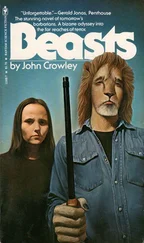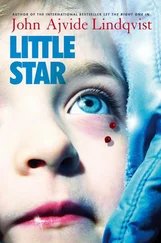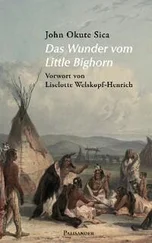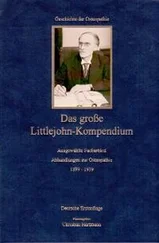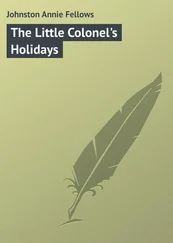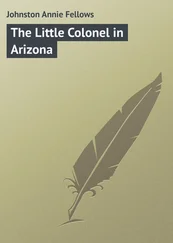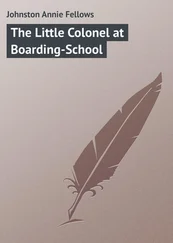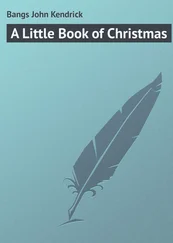Struck. She could distinguish the warm wetness of her blood from the cold wetness of the rain. Where was the pain? She ran on, plunging hopelessly out-of-kilter, one leg seemed not to be working. She fell against tall trees, hearing her pursuers guiding each other with brief words. They were quite near.
There were escapes from this, there were other exits she could find, she was sure of it. But just at the moment she could remember none of them.
Could not remember! All her arts were being taken from her. Well, that was just; for she had dishonored them, had lied, had stolen, had sought power with them in her height of pride; she had used powers she had forsworn, for ends of her own. It was quite just. She turned, at bay; she saw on all sides the dark shapes of her pursuers. They wanted to get quite close, no doubt, so as not to make a great fuss. One or two shots. But what would become of her? The pain she had thought not to feel was just now surging up her body, and was ghastly. Pointless to run any more; black mists were passing before her eyes. Yet she turned again to run.
There was a path.
There was a path, quite clear in the twilight. And there—well, she could go there, couldn’t she? To that little house in the clearing. A shot jolted her horribly, but as though a shaft of sunlight struck it, the house became clearer: a funny sort of house, indeed the oddest little house that she had ever seen. What house did it remind her of? Gingerbreaded and many-colored, with chimney-pots like comic hats, and cheerful firelight showing in the deep small windows, and a round green door. A welcoming, a friendly green door; a door that just then opened; a door from which a broadly grinning face looked out to welcome her.
They shot her, in fact, several times, being superstitious themselves; and certainly she looked as dead as any dead person they had ever seen, the same doll-like, heedless appearance to the limbs, the same vacated face. She didn’t move. No cloud of breath condensed above her lips. Satisfied at last, one snatched up the alligator purse, and they returned to the train.
Weeping, shouting hoarse gouts of laughter, with the old cards (mixed backs and faces) pressed in a messy clutch against his bosom, at last, at last, Russell Eigenblick, the President, pulled at the cord which would start the train again. Blinded with fear and joy, he plunged through the cars of the train, almost knocked over when the train with a jolt started up again; the train plunged through his country, swept with rain, breathing clouds of steam. Between Sandusky and South Bend the rain turned unwillingly to snow and sleet and deepened to blizzard; the baffled engineer could see nothing. He cried out when there loomed up before him with great suddenness the mouth of a lightless tunnel, for he knew there could be no tunnel in this landscape, nor had ever been, but before he could take action (what action?) the train had roared into limitless darkness louder and darker even than Barbarossa’s triumph.
When it arrived, quite empty of passengers, at the following station (an Indian-named town where no train had stopped for years) the porter whom Ariel Hawksquill had shouldered aside in her haste awoke.
Now what on earth?
He arose, and, slow with forty years’ service, walked the train, as astonished at himself for having slept, and at the train for having stopped unscheduled, as at the absence of his passengers.
Midway through the silent cars, he met the white-faced engineer, and they consulted, but said little. There was no one else aboard; there had been no conductor; it was a special train, everyone aboard had known where they were going. So the porter said to the engineer. “They knew,” he said, “where they were going.”
The engineer returned to his cab, to use the radio, though he hadn’t yet decided what to say. The porter continued through the cars, feeling ghostly. In the bar car he found, amid empty glasses and crushed cigarettes, a deck of cards, old-fashioned cards, flung about as though in rage.
“Somebody playin’ fifty-two pickup,” he said.
He gathered them up—the figures on them, knights and kings and queens such as he had not seen before, seemed to plead with him from their scattered places to do so. The last one—a joker maybe, a character with a beard, falling from a horse into a stream—he found caught in the window’s edge, face outward, as though in the act of escaping. When he had assembled them all, and squared them up, he stood unmoving in the car with them in his hands, filled with a deep sense of the world, the whole world, and his place in it, somewhere near the center; and of the value which later ages would put on his standing here alone, at this moment, on this empty train, at this deserted station.
For the Tyrant, Russell Eigenblick, would not be forgotten. A long bad time lay ahead for his people, a bitter time when those who had contended against him would turn, in his absence, to contend with each other; and the fragile Republic would be broken and reshaped in several different ways. In that long contention, a new generation would forget the trials and hardships their parents had suffered under the Beast; they would look back with growing nostalgia, with deep pain of loss, to those years just beyond the horizon of living memory, to those years when, it would seem to them, the sun always shone. His work, they would say, had gone unfinished, his Revelation unmade; he had gone away, and left his people unransomed.
But not died. No; gone off, disappeared, one night between dawn and day slipped away: but not died. Whether in the Smokies or the Rockies, deep in a crater lake or far beneath the ruined Capital itself, he lay only asleep, with his executive assistants around him, his red beard growing longer; waiting for the day (foretold by a hundred signs) when his people’s great need should at last awake him again.
Are you, or are you not? Have you the taste of your existence, or do you not? Are you within the country or on the border? Are you mortal or immortal?
—Parliament of the Birds
‘I want a clean cup,’ the Hatter interrupted. ‘Everyone move one place.’
—Alice in Wonderland
That the Dog predicted by Sophie which greeted Daily Alice at the door should turn out to be Spark didn’t surprise Alice much, but that the old man whom she found to guide her on the far side of the river should be her cousin George Mouse was unexpected.
“I don’t think of you as old, George,” she said. “Not old .”
“Hey,” George said, “older than you, and you’re no spring chicken, you know, kid.”
“How did you get here?” she asked.
“How did I get where?” he replied.
They walked together through dark woods, talking of many things. They walked a long way; spring came on more fully; the woods deepened. Alice was glad of his company, although she had not been sure she needed a guide; the woods were unknown to her, and scary; George carried a thick stick, and knew the path. “Dense,” she said; and as she said it she remembered her wedding journey: she remembered Smoky asking, about a stand of trees over by Rudy Flood’s, whether those were the woods Edgewood was on the edge of. She remembered the night they had spent in the cave of moss. She remembered walking through the woods on the way to Amy and Chris’s house. “Dense,” he had said; “Protected,” she’d answered. As each of these memories and many others awoke in her, unfolding as vivid as life, Alice seemed to remember them for the last time, asthough they faded and dropped as soon as they blossomed; or rather that each memory she called up ceased, as soon as she called it up, to be a memory, and became instead, Somehow, a prediction: something that had not been but which Alice, with a deep sense of happy possibility, could imagine one day being.
Читать дальше

